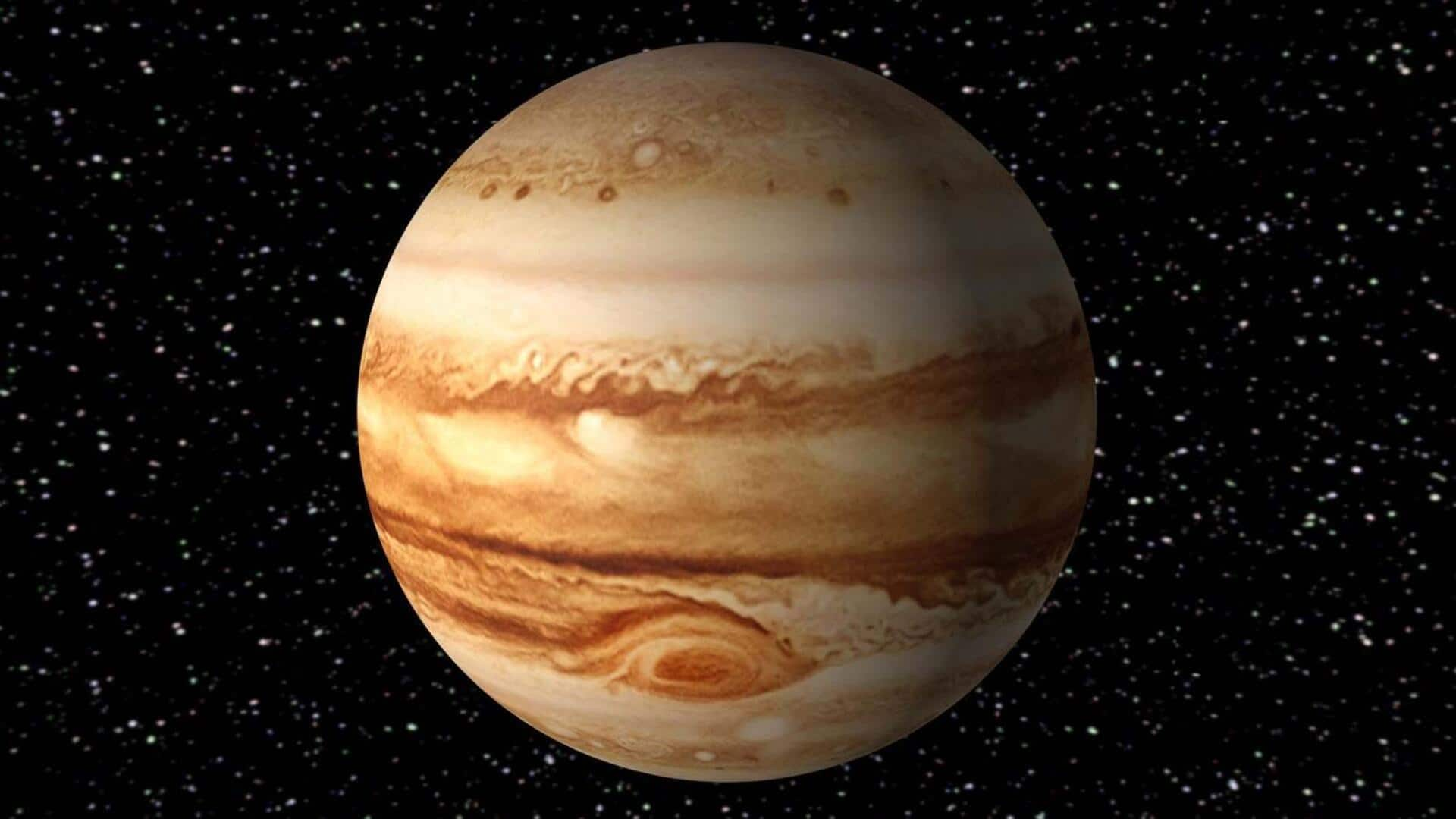
Not Sun, but Jupiter is father of the solar system
What's the story
A recent study by scientists at Rice University has revealed that Jupiter played a crucial role in the formation of Earth, Mars, and Venus. The gas giant acted as a barrier, preventing gas and dust from entering the inner solar system and into the Sun. This way, it preserved the building blocks of our planet. The research highlights how Jupiter's growth created different zones that trapped material essential for these planets' formation.
Gravitational influence
Jupiter's growth and its impact on solar system
The study also highlights Jupiter's immense gravitational pull, which "created ripples in the disk, disturbing the gas and forming ring-like bands of material that acted like cosmic traffic jams." These rings trapped small dust grains, which eventually formed rocky bodies and later planets. This process was instrumental in shaping our solar system as we know it today.
Zone separation
Separation of inner and outer zones
As Jupiter grew, it created a wide gap in the disk, dividing the solar system into two zones: inner and outer. This separation prevented material from mixing between these zones, preserving isotopic signatures found in meteorites. The study also explains why some of the oldest meteorites formed millions of years later than the first solid bodies in our solar system.